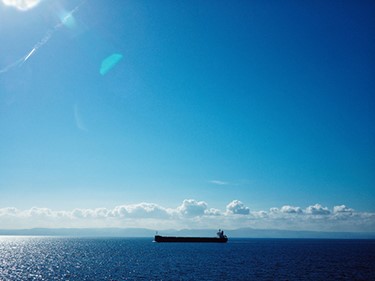
Value-derived emissions data can help shipowners with upcoming investment decisions and operational challenges
15th April 2021 | Opinion, Regulations
The IMO’s EEXI regulations are set to be adopted at MEPC 76 (June 2021) and enter into force in 2023. They will certainly include new technical and operational measures to help meet the vessels required EEXI. These measures may include slower steaming, engine power limits, energy saving technology, hydrodynamic optimisation, fuel switching and other operational refinements. EEXI forms part of the IMO’s overall strategy for a reduction of carbon intensity by 40% by 2030 and 50% up to 2050.
It is anticipated this regulation could affect 20,000 to 30,000 ships already in operation and be an expensive and time consuming burden for ship owners. In addition to this, the EU is planning to bring shipping into the EU ETS which may end up as a ‘polluter pays’ approach if the maritime lobby is succesful in its challenge.
On top of this, the demand for transparency on sustainable and socially responsible practices is on the rise. Shipping companies are accountable to their various stakeholders which include investors, charterers, customers, Flag State, employees, and nongovernmental organizations (NGOs) that want to evaluate a company’s operational impact. Environmental, Social and Governance (ESG) reporting is starting to be seen as providing valuable insights which help create long-term value for stakeholders. It can significantly impact the financial metrics of a company and better inform investment decisions such as the latest IMO and EU emisisons reduction initiatives.
At Emsys Maritime, our business has always been based around creating customer value from the data we collect, rather than purely providing compliance-led emissions monitoring solutions. We believe accurate measurement of a vessels emissions footprint, when used in conjunction with other vessel provided data, can significantly help the decision making process for the operational and investment challenges shipowners will face. There is also a fine balance between reducing GHG’s (CO2 and methane) and other pollutants such as NOx, CO, SO2 and particulates (dust). Sometimes a reduction in one side will create a counter rise in the other.
The next few years will place extraordinary pressure on ship owners, many of the decisions they will need to make will be outside their traditional maritime expertise, therefore any data which adds value will help significantly in their ultimate decision making process. Emsys Maritime works with many companies who see the value in this data and are trying to get ahead of the curve, its almost certain that ESG reporting pressure will increase over time and tackling this challenge with an opportunity mindset may help the innovators gain a commercial advantage.
